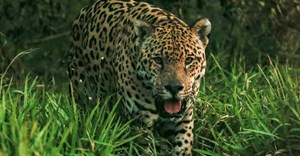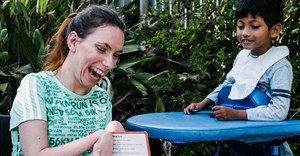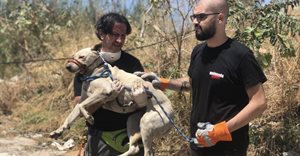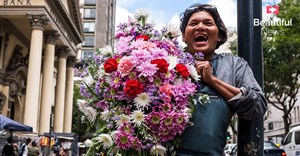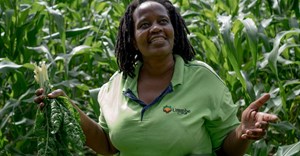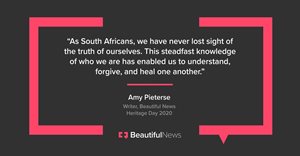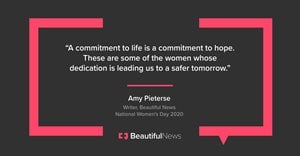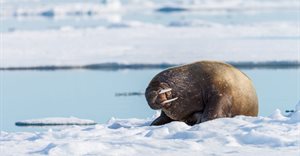Trending




 Sabre EMEA 2024 Awards: Razor PR, Retroviral top SA agenciesDanette Breitenbach
Sabre EMEA 2024 Awards: Razor PR, Retroviral top SA agenciesDanette Breitenbach
Elections 2024
Grit, resilience, and the creativity to overcome adversity
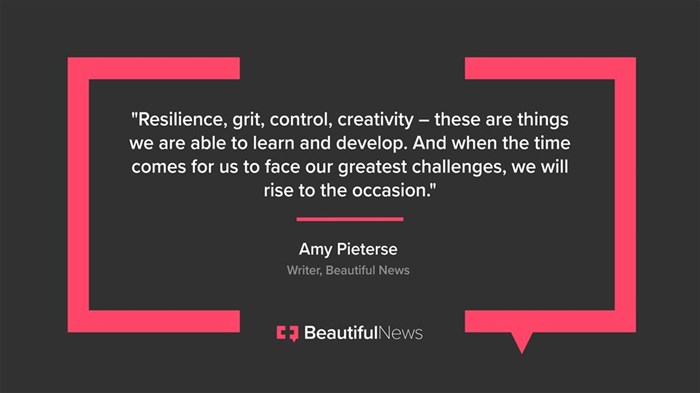
There’s a faint glimmer of hope that always comes with the New Year. The belief that it will be better. But pandemics happen in waves. And while vaccines are rolled out across the world, South Africa is caught in a fatal second wave. Cases are up, so are deaths. In January, life under lockdown went on as it did before with an extra heaping of bad news – a hurting economy, the return of load shedding, the bungled procurement of vaccines. No, life is not better in the New Year. But it never really has been.
There is little that is in our control. Extenuating circumstances will always change our plans, or even bring our lives to a halt. Goals and resolutions mean nothing when your health is at risk or you lose your job. In the most difficult times of our lives, it’s sheer grit that determines the outcome.
In psychology, the locus of control is the extent to which a person believes they have control of a situation. Those with an external locus believe they are subjects of outside forces, with no influence on their life’s direction. But those with an internal locus of control believe that they have power and responsibility over their lives. Becoming the leaders of our own paths can be the difference between success or failure, perseverance or defeat, and in some cases, life or death. Take it from these individuals. Reclaiming agency of your life, even in the midst of disaster or tragedy, can lead to lasting change.
Take charge – because it’s your life
Few people may have expected William Baartman to make it to Everest base camp. But he is a picture of fortitude since the day a petrol bomb was thrown into his house. The year was 1976. Students protesting the use of Afrikaans as the language of instruction targeted Baartman’s father, an Afrikaans teacher. Baartman was three years old at the time. His sister, Grace, died in the attack. Suffering burns to 75% of his body, Baartman spent much of his life hidden away. “I felt ashamed of who I am, who I was,” he says. But every day, Baartman pushed to improve his confidence. He knew he wasn’t alone. Visiting young burn survivors at the hospital, he instils within them the self-belief to reclaim their lives. “I see myself in them – how I survived, how I gained my strength,” Baartman says. “I want them to feel free while they’re still healing.” In 2018, he successfully hiked to Everest base camp, raising funds with the Avela Foundation to establish a support network and refurbish burn units. “I’m doing it because it is my life,” Baartman says. “Don’t give up.”
Despite everything, Avril Andrews believes in the possibility of change. She faced the worst moment of her life when her son, Alcardo, was killed. He had been working to help gangsters change their lives in Hanover Park. Then, he was shot by the people he was attempting to support. Fear pervaded the streets. Neighbours lowered their gaze when Andrews passed by. “I had to make a choice,” she says. “Move out of the community, or stay and do something.” Andrews chose to stay. Within a few months, she founded Moms Move for Justice, an initiative to support mothers who experienced gang violence. Along with her group, she advocates for reformation, and marched to Parliament in 2019 to make her voice heard. “The work I do keeps my son’s spirit alive,” she says. A stalwart of her community, Andrews’ efforts signal hope for the future.
Yvette Hess understands that healing doesn’t come easily. When she was diagnosed with depression, bipolar, and anxiety disorder, she turned to alcohol to cope. And she only spiralled from there. Hess had to decide – either continue down this destructive path, or regain control. During a stay in a psychiatric ward, she took up painting. Through art, she began to express herself and take charge of her recovery. Now sober, Hess speaks openly about her experiences through her writing and painting, combating the stigma that prevents so many from seeking help. “My strategy definitely has become about self-empowerment,” she says. “Taking responsibility for your healing because it’s your life.”
For Conn Bertish, creativity was a matter of survival. After being diagnosed with brain cancer, he faced a gruelling seven-year ordeal. But Bertish was determined not to succumb to helplessness. He turned to his imagination, using it to play an active role in his recovery. Sketching scenes and doodles of overcoming cancer, he built his strength and endurance. “I dealt with my cancer by literally diving into my fear, and getting involved in becoming part of it,” Bertish explains. Today, he is cancer-free. He’s since developed an app, Cancer Dojo, to share his tools of becoming harder to kill in the face of illness. “We can always find a way to positively engage with something,” Bertish says.
While we may not face the same circumstances Baartman, Hess, Andrews, and Bertish have overcome, we will each face our own adversity. For many, the pandemic is proving to be the most difficult period of their lives. Yet these individuals are testament to the fact that we have the power to choose which experiences define us, and the power to choose how we show up in our own lives. Resilience, grit, control, creativity – these are things we are able to learn and develop. And when the time comes for us to face our greatest challenges, whether now or in the future, we will rise to the occasion.




